MAJOR 'RECLAIMING HEALTH' PAPER CALLS FOR URGENT RESET OF NZ HEALTH POLICY
January 23, 2026.
Global Support for New Zealand Report Calling for Urgent Reset of New Zealand Health Policy: 'Reclaiming Health' Sets Out a Path to Reversal, Not Just Management, of Chronic Disease.
A major new report by Physicians and Scientists for Global Responsibility New Zealand (PSGRNZ) challenges the foundations of New Zealand’s health policy and dietary guidance, arguing that the country’s escalating burden of chronic metabolic and mental illness is not inevitable and can be reversed.
The report has sparked enthusiastic responses from a wide range of international and domestic experts working across the metabolic and mental health disciplines.
The report has been sent with an open letter to members of Parliament, New Zealand health agencies, the Auditor-General of New Zealand, and the Mental Health and Wellbeing Commission.
Titled Reclaiming Health: Reversal, Remission & Rewiring, the report synthesises evidence from metabolic science, nutritional psychiatry, clinical practice, and population data. Diabetes, cardiovascular disease, depression, anxiety, neurocognitive disorders, and obesity are shown to be rising together, often within the same individuals and at younger ages.
LINKS TO:
- OPEN LETTER; 3 PAGE SUMMARY PAPER + RECOMMENDATIONS FOR REFORM; CHAPTER-BY-CHAPTER READ.
- RECLAIMING HEALTH FAQs.
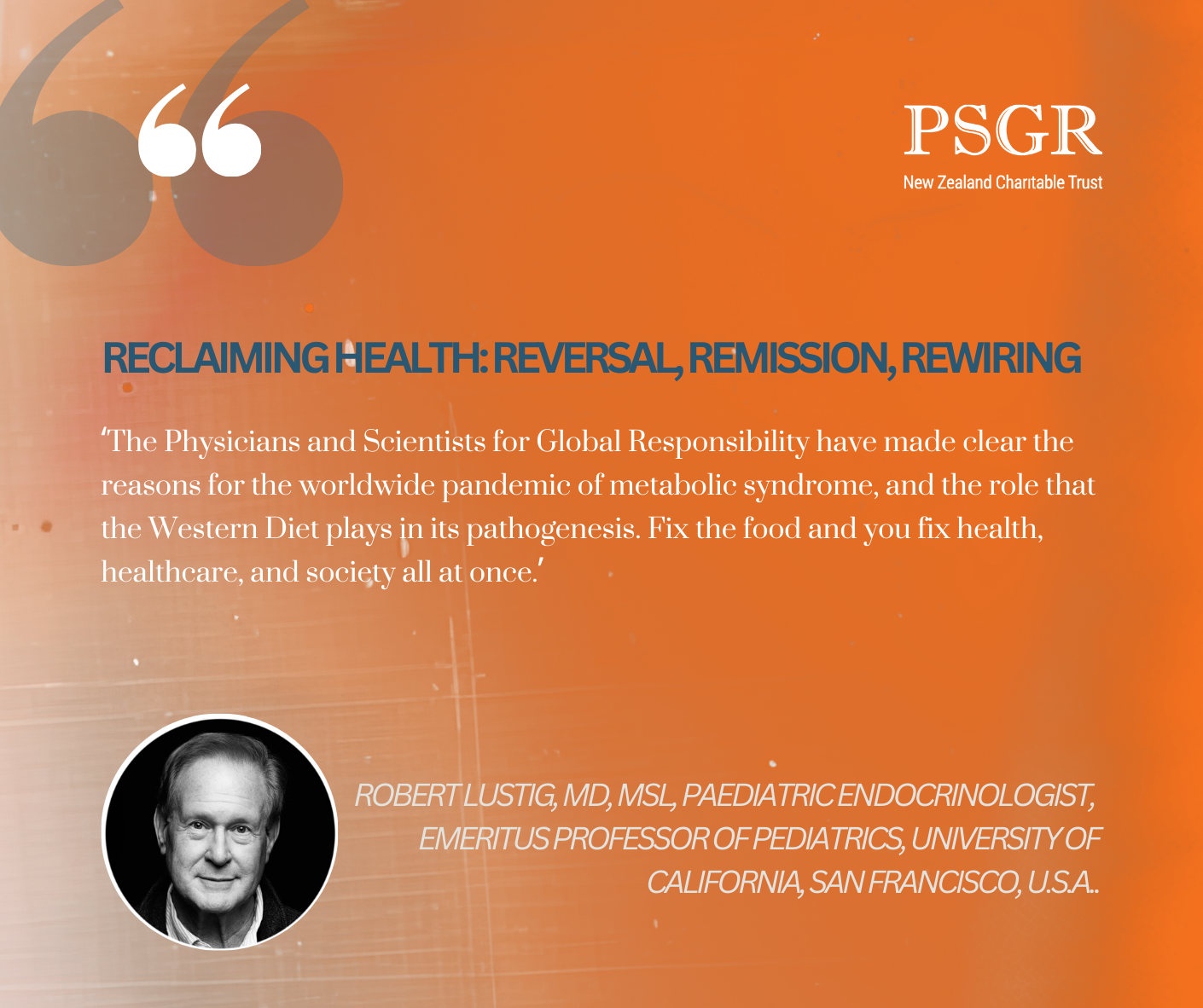
WHO ARE PSGRNZ?
SCIENCE ADVOCACY FOR HUMAN & ENVIRONMENTAL HEALTH ... IN SERVICE OF THE PUBLIC'S RIGHT TO BE INDEPENDENTLY INFORMED.
Physicians and Scientists for Global Responsibility (PSGRNZ) work to produce transparent, high quality science information to educate and inform the public. You might not know us - but we've been working on these issues for 25 years! We respond to consultations on new policy and legislation, release white papers and reports, and interview scientists and doctors whose work draws attention to complex scientific issues - that are often not easily inserted into and indeed, are often missing from, government policy.
PSGRNZ place the public interest, and the obligation to protect future generations at the centre of all research and decision-making. To do this involves thinking about how society identify problems in the first place, and then permits meaningful discourse around normal challenges, such as uncertainty and ambiguity in information flows.
PSGRNZ 'wade into' human and environmental health issues that are polarised and controversial. These issues are not well covered by MSM. Why are they controversial? Because they concern human life - and the impact of technology on our health. As humans we interact with a lot of technologies and a lot of substances - so life is - and must be - political!
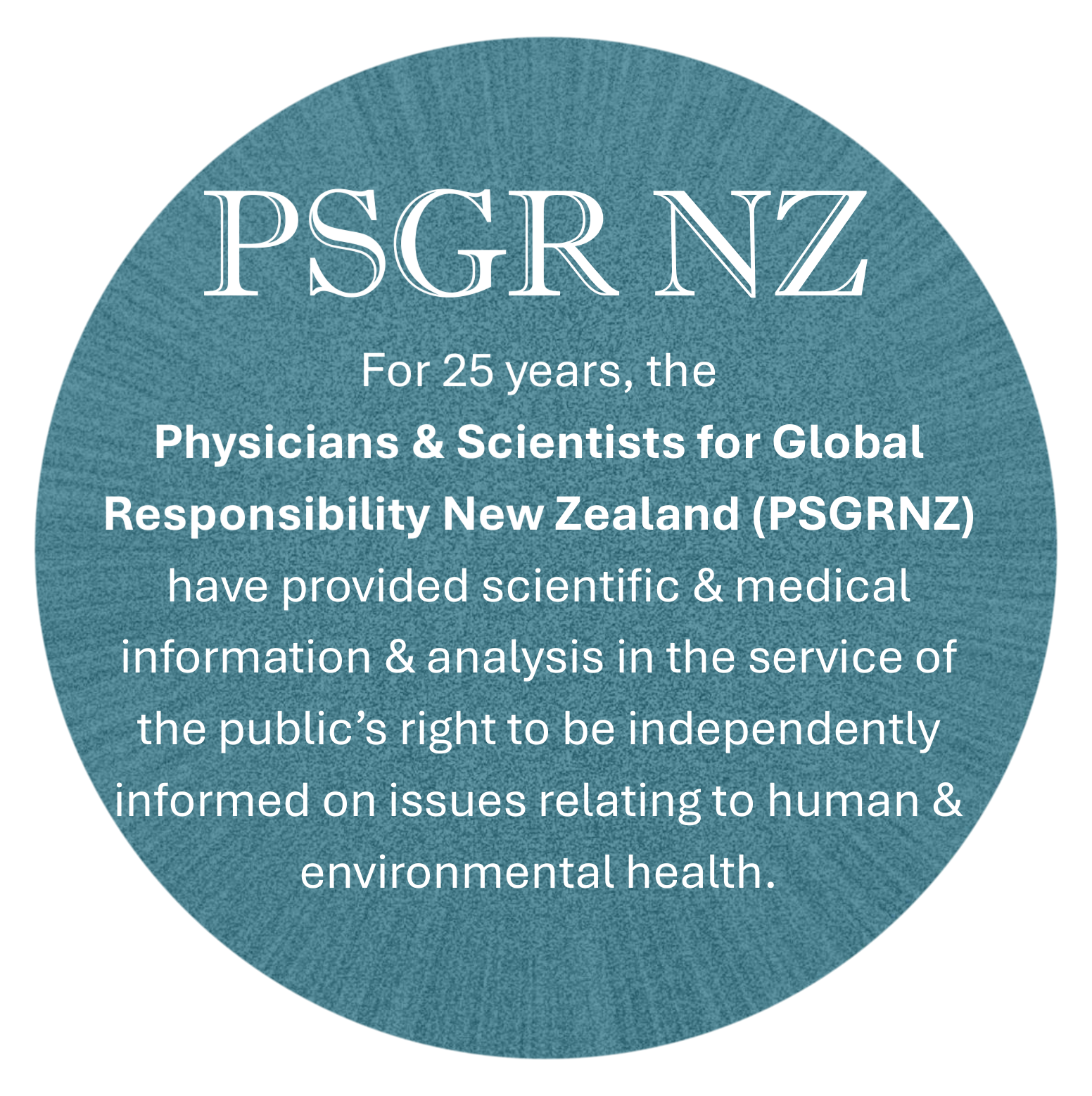
RECENT WORK:
February 2026: Natural Environment Bill - submission to the Environment Select Committee.
January 2026: Telecommunications and Other Matters Amendment Bill - submission to the Select Committee.
December 2025: Paper presentations at the Sociology Association of Aotearoa New Zealand (SAANZ) December 3-5, 2025 conference, Wellington, NZ.
- Session 2.4: Mental Health and Wellbeing. Exposing the treatment gap: When New Zealand’s long-term mental wellbeing strategy ignores the role of nutrition in protecting and sustaining mental health. J.R. Bruning, PSGRNZ. (Transcript).
- Session 8.5: Food and Health. 'Building in policy for 'fantastically cheerful medicine'. J.R. Bruning, PSGRNZ. (Transcript).
November 2025: Glyphosate: PSGRNZ Substack (Blog): What is happening? Can the Courts Protect us if Principles enshrined in Legislation are Set Aside? Interview (RCR): Glyphosate and a Crisis of Trust.
November 2025: GE Bill. Nov 6 open letter sent to all NZ MPs, sent to all MPs by political party. PSGRNZ's accompanying press release.
Points that were made in the Nov 6 open letter:
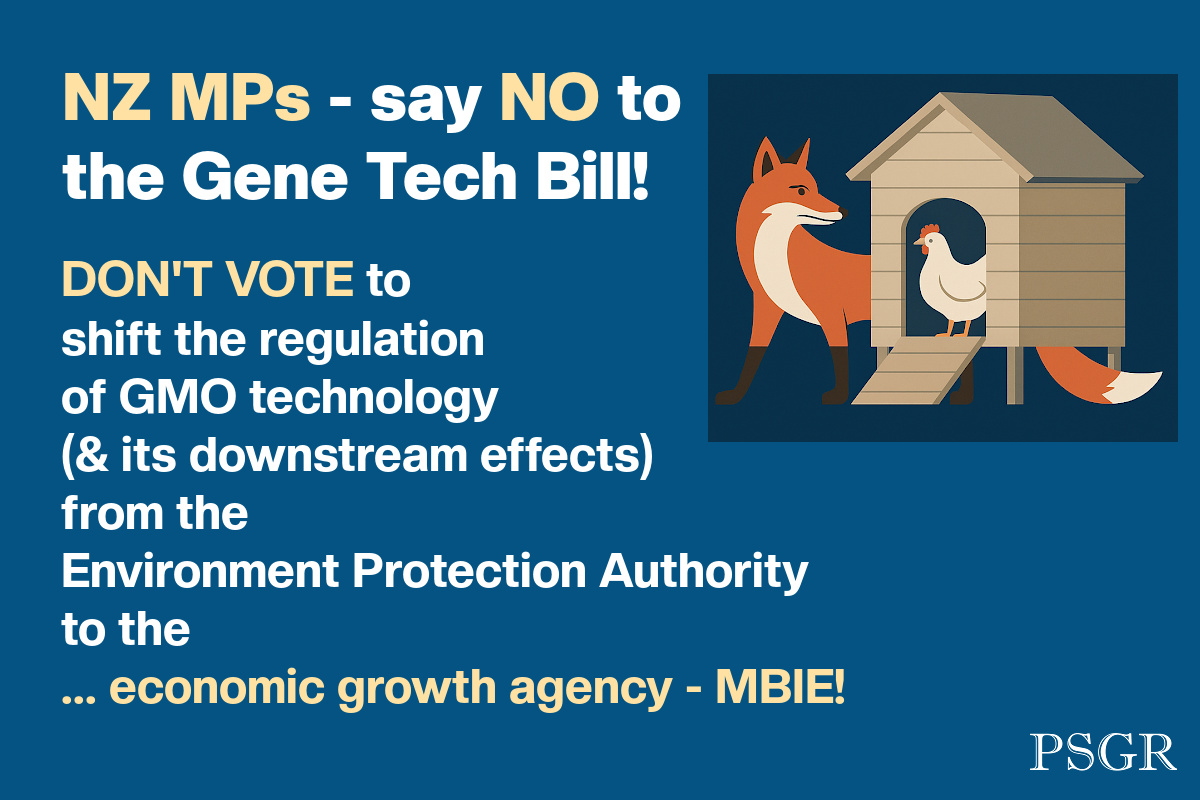
September 2025: Trifix Herbicide, NZEPA consultation on triflusulfuron methyl.
June 2025: We expressed alarm that the Australian Office of the Gene Technology Regulator (OGTR) would require so little evidence before proposing to release a genetically modified (GM) mosquito strain to help prevent dengue outbreaks (DIR 207). Following objections, the company Oxitec Ltd (who partnered with the CSIRO) withdrew its application.
THE 2025 'HIJACKING DEMOCRACY' PAPERS
April 16, 2025 - PRESS RELEASE: Has MBIE short-circuited good process in recent government reforms?
- PSGRNZ (2025) When powerful agencies hijack democratic systems. Part I: The case of gene technology regulatory reform. Bruning, J.R., Dommisse, E.. Physicians & Scientists for Global Responsibility New Zealand. ISBN 978-1-0670678-0-9
- PSGRNZ (2025) When powerful agencies hijack democratic systems. Part II: The case of science system reform. Bruning, J.R.. Physicians & Scientists for Global Responsibility New Zealand. April 2025. ISBN 978-1-0670678-1-6
PSGRNZ's strategic direction is underpinned by legal principles and/or fields of law (including particularly public law) that support decision-making in the public interest so that future generations may be protected.
If society draws attention to risk from a technology or a substance, there is a financial threat to the corporations that have that technology or substance on the market, or a political threat to the government institutions whose policies say that a technology or substance is beneficial, safe and effective. But for democracy to work, the scientific and technical information used to justify that the tech, or the policy promoting that a tech is safe must be evidence-based. It must be transparent and accountable, and the public must see how the decision was made. Being evidence-based includes updating the evidence as the scientific data on risk changes.
Some of the issues PSGRNZ talk about: fluoride, pesticides and regulatory failure (e.g. glyphosate and chlorpyrifos), the evidence that ultraprocessed food is addictive, antidepressant risk in pregnancy, central bank digital currencies (CBDCs) and why gene edited techniques and organisms are not as safe as authorities imagine. If governments don't use impartial evidence when they're making a decision about a technology or substance, the public really can't trust the data because of the conflicts of interest in the data that is used. When industry-made data (that is secret and confidential) is used to justify keeping a product on the market, perhaps it is more like a form of propaganda?
Democracies have rules and principles in place to ensure that government officials follow good process, and act in the public interest. Important democratic principles can be undermined, and values set aside. Corporate data can be preferred, even if it is secret. The job for society is to stop this happening and to be keenly aware on regulatory capture. People need to step in when officials start to pretend that they do not have to be transparent and accountable, fair and just.
Working out when a technology or substance produces harm, to a small child or an adult, is a difficult process because harm can be acute (immediate) or chronic (slow moving and more difficult to detect). How do decision-makers, scientists and researchers problematise, weigh and consider issues that might be uncertain or ambiguous? How this is undertaken is a reflection of the culture, power-relations and resourcing that surrounds them. It can be easier for an under-funded regulator to default to old, corporate data. If nuanced or difficult issues are dismissed or ignored; and there is no language of probability, risk or precaution, society can end up ignorant - such as failing to understand when an (economic, biological, ecological, political or social) tipping point might be arrived at. Good decisions that support health and resilience require broad-based social, scientific and economic information, recognition of power and politics, and value-based judgement. Talking about these issues can help society understand what our values are and prioritise what is important.
There is a substantial volume of legal literature that underpins and support scientific decision-making in the public interest, these include the precautionary principle, administrative principles of law and the emerging field of earth jurisprudence.
These principles support and reinforce complex decision-making to protect and sustain human and environmental health and the biological integrity of the land, water, food and technology that we depend on.

Our research and educational role focusses on drawing public attention to both human health and ecosystem risks from unanticipated effects of new technologies or environmental pollution. For example, such damage may adversely impact on a genome - whether plant, animal, micro-organism or other - and have the potential to create adverse, unanticipated, and inter-generational consequences that cannot be reversed.
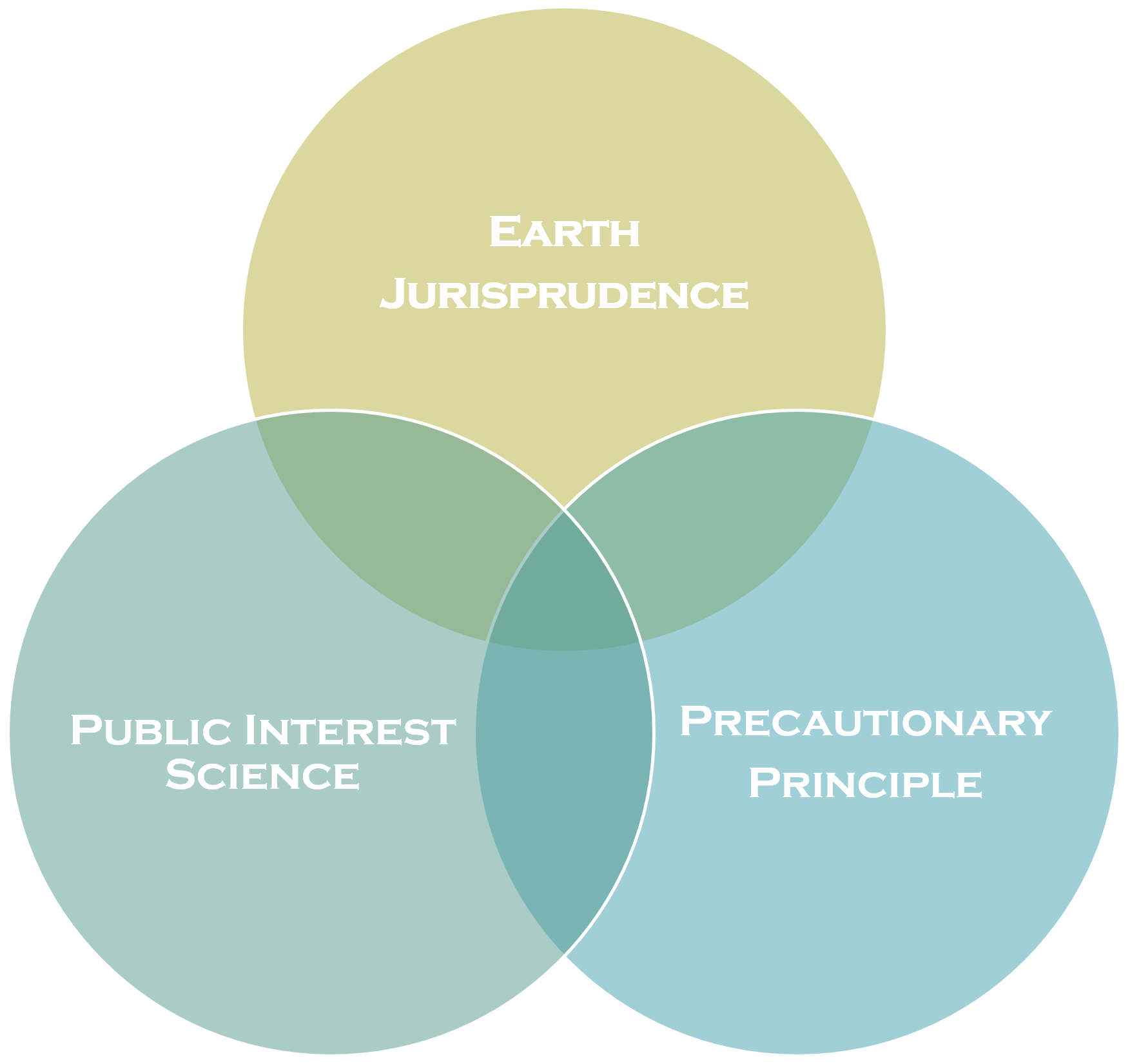
Health risk is not limited to heritability. Twenty-first-century science increasingly demonstrates the role of environmental influences in modifying genetic function. Our work includes research to advance understanding of how biological systems can be supported to function effectively while minimising exposure to environmental harms.
Evidence indicates that epigenetic modifications to the genome, which do not alter DNA sequence but affect gene expression, play a substantial role in health and disease. Because epigenetic regulation influences all biological processes, such modifications can have wide-ranging physiological effects. These changes may arise from exposure to pollution and toxicants, nutritional stress, disruption of the gut microbiome, and chronic psychological stress.
PSGRNZ seeks to ensure that evidence used in its analyses is robust, unbiased, and credible, with due regard for the precautionary principle and the public interest. This includes careful attention to research produced by independent scientists whose work is directed toward protecting ecosystem integrity and human health.
Degradation of ecosystem and human health cannot be addressed, when market-driven science over-rides public-interest science and when authorities and media desist from examining low-dose and mixture effects from anthropogenic activities.
Over recent decades, government-funded public-interest research has declined substantially. This has contributed to the increasing dominance of market-funded research, as public-sector scientists have become increasingly dependent on commercial funding, and funding frameworks that prioritise patent-seeking for professional viability.
PSGRNZ welcomes new members - even if you are not scientists or doctors!
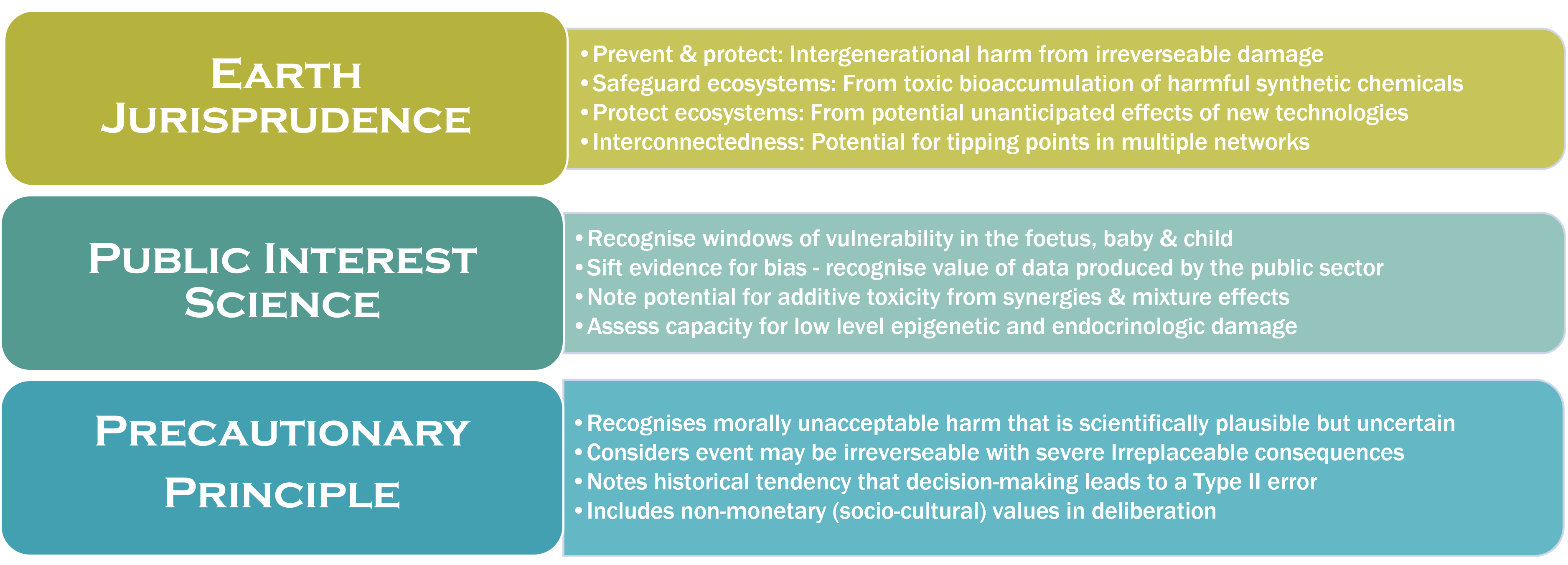
The information, submissions and other contents on this website are provided by PSGRNZ in the public interest and for professional scientific and medical discussion. This does not imply that all of the views expressed are held by all Trustees. Links to other sources of information do not imply an endorsement by PSGRNZ of that organisation.